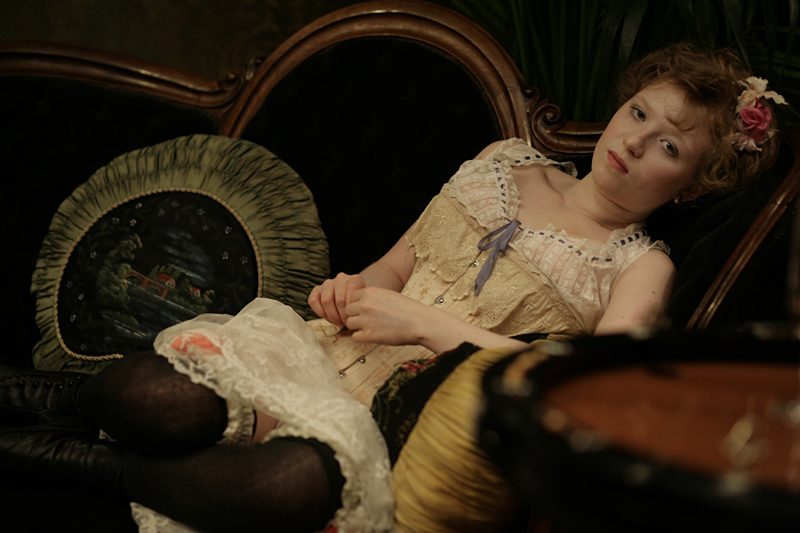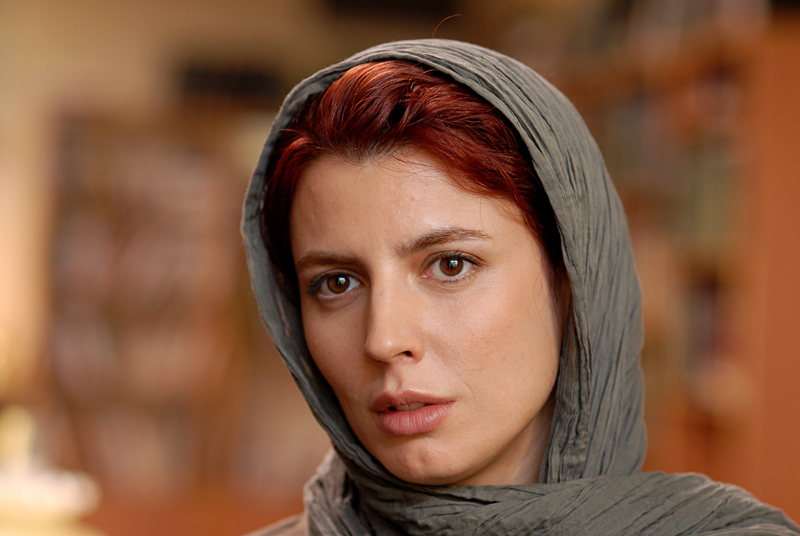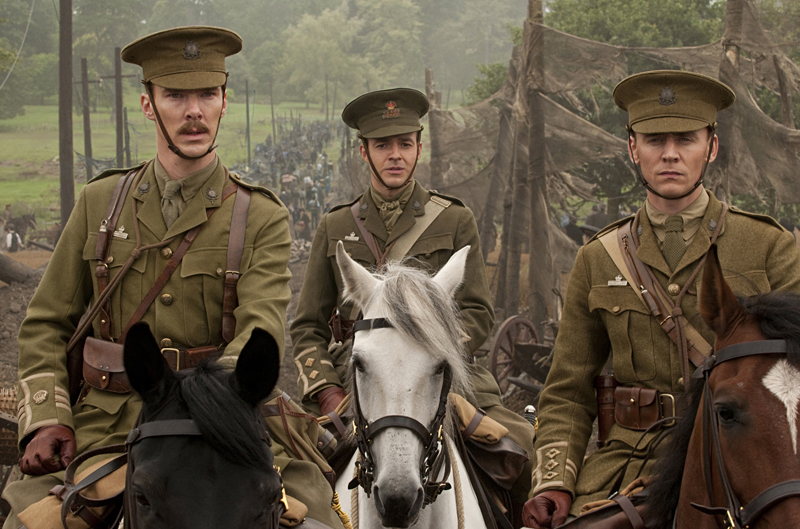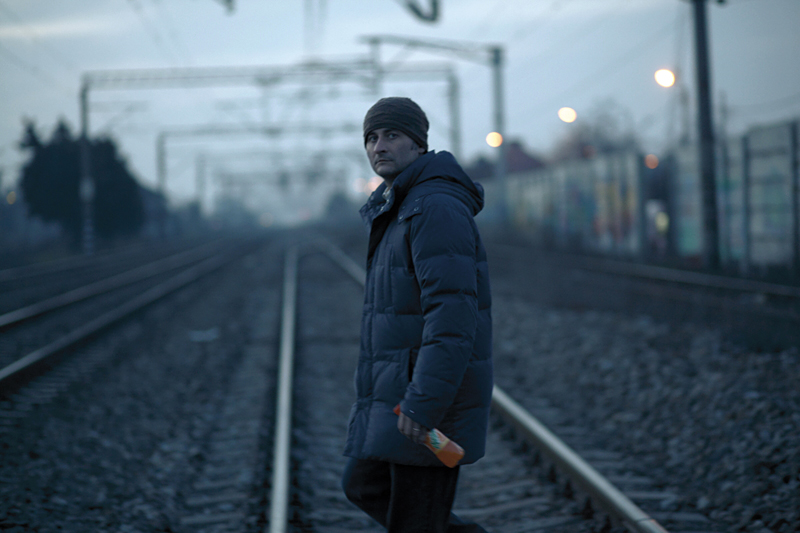As this baroque genealogical melodrama reaches its appropriately hysterical denouement, Vincent Gallo fixes his pale gaze on young co-star Alden Ehrenreich and reassures him that “it’s going to be OK–we’re a family.” Gallo’s warmth is not altogether convincing, but for writer-director Francis Ford Coppola, Tetro is a cri de coeur, one more from the heart.
Step two in Coppola’s reinvention as a self-financed, off-Hollywood, personal filmmaker, Tetro is a marked advance over the Faustian, time-traveling absurdity Youth Without Youth (2007). A moody job shot in carefully framed widescreen and sumptuous, black-and-white chiaroscuro—with a few gaudy color flashbacks—it more than redeems the arty pretension of Coppola’s 1984 youth film Rumble Fish, not to mention the dismal clunkers that followed (Cotton Club, Gardens of Stone, Tucker, Godfather III, Dracula, Jack, The Rainmaker).
Bennie Tetrocini (Ehrenreich), an 18-year-old waiter on a luxury cruise ship, takes shore leave in Buenos Aires, looking for his long-lost older brother Angelo (Gallo), whom he has idealized as a successful writer. Now calling himself Tetro—short for the family name, but also Italian for “gloomy”—the exile is holed up in the atmospheric port slum La Boca, and not exactly thrilled to see baby brother Bennie. Gallo makes a fabulous entrance: leg in a cast, wielding his crutch to vent displeasure on the furniture. Willful destruction is the signifier of integrity. Attended by a devoted common-law wife (Maribel Verdú) whom he met in the mental hospital, Tetro is the touchiest of suffering artists. It’s tempting to suspect that Gallo wrote his own dialogue and even perhaps Verdú’s. “He’s like a genius but without a lot of accomplishments,” she explains to the avid kid brother.
Tetro is blatantly operatic, but its florid style is organic. Tetro’s mother, we learn, was a diva. His father (like Coppola’s, albeit to far greater success) is a composer; his uncle (again like Coppola’s, if less successfully) is a conductor. Tetro’s favorite movie, to which he takes the child Bennie, is Powell and Pressburger’s flaming The Tales of Hoffmann. These flashbacks allow for some ultra-theatrical inserts—Coppola shows us the dismemberment of Hoffmann’s dancing doll, Olympia—as does the narrative: Tetro is an unproduced playwright who scribbles cryptic notes to himself, hangs with the Buenos Aires underground, and at one point operates the lights for (and disrupts) a drag version of Faust.
Meanwhile, snoopy Bennie insinuates himself into his cranky brother’s life, enabling Gallo to throw a few choice tantrums, and begins rattling the skeletons in the family closet. Papa Carlo (Klaus Maria Brandauer) is an insanely competitive and manipulative monster who browbeats his younger brother Alfie, as well as his eldest son, with the notion that “there is only room for one genius in this family,” and is last seen glowering over his own funeral in a Mussolini-scale personality poster. The acting-out grows increasingly extravagant on the road to Patagonia, where a formidable drama critic known as Alone (hilariously swanned by Carmen Maura) has arranged a drama festival to honor the Parricidés movement and perhaps the play that Tetro has secretly written.
Parricide or parody? “What has happened to our family? We were so promising,” Tetro’s uncle wonders. Coppola, who has scheduled Tetro to open on his father’s birthday, has no doubts. Having directed the greatest family saga in Hollywood history, he can be excused for mythologizing his own clan—”nothing in this movie ever really happened but it’s all true,” he told interviewers at Cannes, where Tetro had its premiere—or for inspiring others to do so. There’s more than a little baggage in that currently ubiquitous Louis Vuitton ad, a dramatically posed pastoral image of Francis and Sofia, shot by Annie Leibowitz during Tetro‘s production. Pointing a finger and a pen, the Olympian filmmaker lectures the dutiful daughter sprawled at his feet, one knee coyly raised, in an image suggesting a Renaissance rendering of Jove explaining dramaturgy to Thalia.
Tetro exhibits a similar self-aggrandizing sort of nutty classicism. Old-fashioned if not anachronistic in its aspirations, this is an art film that might have been made in 1965—the period when the UCLA-educated Coppola first broke into production. The presiding deities are Orson Welles, Carol Reed, and early Fellini—the absurdist Roman Polanski of Cul de Sac would be an analogue—although in interviews Coppola has been eager to reference Pirandello, Tennessee Williams, and Greek tragedy.
The narrative is a bit labored, but after decades of far more ponderous projects, Coppola has found his way home. However overwrought, Tetro is neither a project nor a package; it exudes enthusiasm and love of cinema. Coming from the 70-year-old who once bestrode Hollywood Boulevard like a colossus, Coppola’s new movie offers the best possible evidence of youth without youth.








